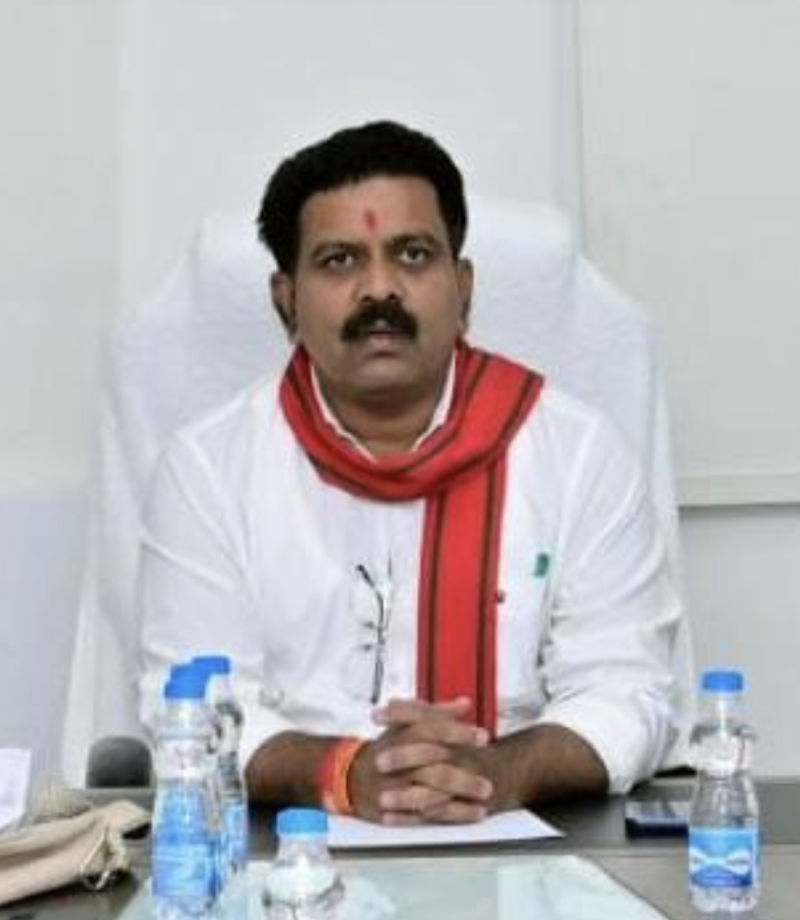A meeting was held at Mahanadi Bhawan under the chairmanship of Deputy Chief Minister Shri Vijay Sharma to make the PESA Act 1996, Forest Rights Act 2006, and Community Forest Management more effective through departmental coordination. Representatives from the Forest & Climate Change Department, Panchayat & Rural Development Department, Tribal Welfare Department, and subject experts from social organisations were present. The meeting reviewed the rules framed under the PESA Act in 2022, discussed each rule in detail, and explored ways to implement them more effectively.
Traditional Method to Be Used for Determining Boundaries of PESA Villages — Deputy CM Sharma
Deputy Chief Minister Sharma instructed officials to determine village boundaries and empower smaller villages under gram panchayats with financial authority. He emphasised including traditional village boundaries within the PESA framework. He said gram panchayats should mutually demarcate their customary boundaries.
Special Awareness Campaign to Be Launched in PESA Villages
Sharma directed that a campaign be launched to spread awareness about PESA rules in PESA villages. He instructed that five villages each from Niyad Nella Naar villages and PESA development blocks be selected for intensive awareness drives. The aim is to educate villagers about their special rights and protect them from misinformation. He also directed that university students from sociology departments conduct surveys to document local methods, customs, traditions, and practices.
He further directed that new villages be formed within revenue gram panchayats after approval from gram sabha committees. He said villages formed under the Act should be given greater powers, including financial authority and withdrawal rights through local committees.
Panchayat Funds and Gram Sabha Funds Will Be Used by Villages
Sharma instructed that rules be framed for the utilisation of Panchayat Funds and Gram Sabha Funds in PESA villages, enabling village heads and public representatives to use them appropriately. Each PESA village will have a separate office, bank account, fund, and letterhead. Villages will also be granted rights related to the utilisation of panchayat resources, collection, processing, and marketing of minor forest produce, along with its proper management. An annual analysis will be conducted of land parcels sold in each PESA village to ensure transparency.
Inconsistencies Between FRA and PESA Rules to Be Removed
Sharma directed that inconsistencies between the Forest Rights Act and PESA Act rules be resolved by making necessary amendments to empower PESA villages further. He instructed mandatory use of the central government’s ‘Nirnay App’ and ‘Sabhaagar App’ to maintain digital records of panchayat decisions.
State-Level Action Plan Committee to Coordinate Efforts
He stated that confusion resulting from different departments framing separate rules under PESA would be removed through consolidation. A state-level action plan committee—comprising departmental ministers and secretaries—will coordinate this effort. The currently inactive district-level PESA monitoring committees will also be revived to ensure proper implementation.
Vananchal Science Centres to Become Transformational Hubs for PESA Villages
The meeting also reviewed the unique Vananchal Science Centre at Asna. Sharma described it as transformative, stating that the goal is to train youth in modern methods of processing, collecting, and marketing forest produce, enabling them to earn livelihoods from natural resources.
100 Youth Selected From PESA Villages for Experimental Development Project
Officials presented details of an experimental project by the Panchayat & Rural Development Department to strengthen PESA village development. Under this initiative, 100 PESA villages from 16 scheduled districts have been selected, where educated local youth will support villagers in accessing government schemes such as PM Awas Yojana, PM Kisan Yojana, Ayushman Bharat, etc. They will also help create Aadhaar cards, ration cards, voter IDs, and Ayushman cards. Regular training will be provided to these youth.
Villagers Will Lead Development Under Atmanirbhar Gram Concept — Deputy CM Sharma
Sharma said the main objective is to make villages self-reliant. Under the Atmanirbhar Gram concept, when villagers themselves participate in the development process, outcomes will be more effective and aligned with local aspirations. Special priority will be given to Sukma, Bijapur, and Abujhmad regions, where villages will be granted autonomy for their development and conservation.
Those present at the meeting included Secretary Shri Bhim Singh, PCCF Shri V. Srinivas Rao, Director of Panchayat & Rural Development Smt. Priyanka Richa Mahobiya, Additional Director of Tribal Welfare Shri Sanjay Gaur, Joint Director of Panchayat Shri Dinesh Agrawal, subject experts from social organisations, and other officials.


